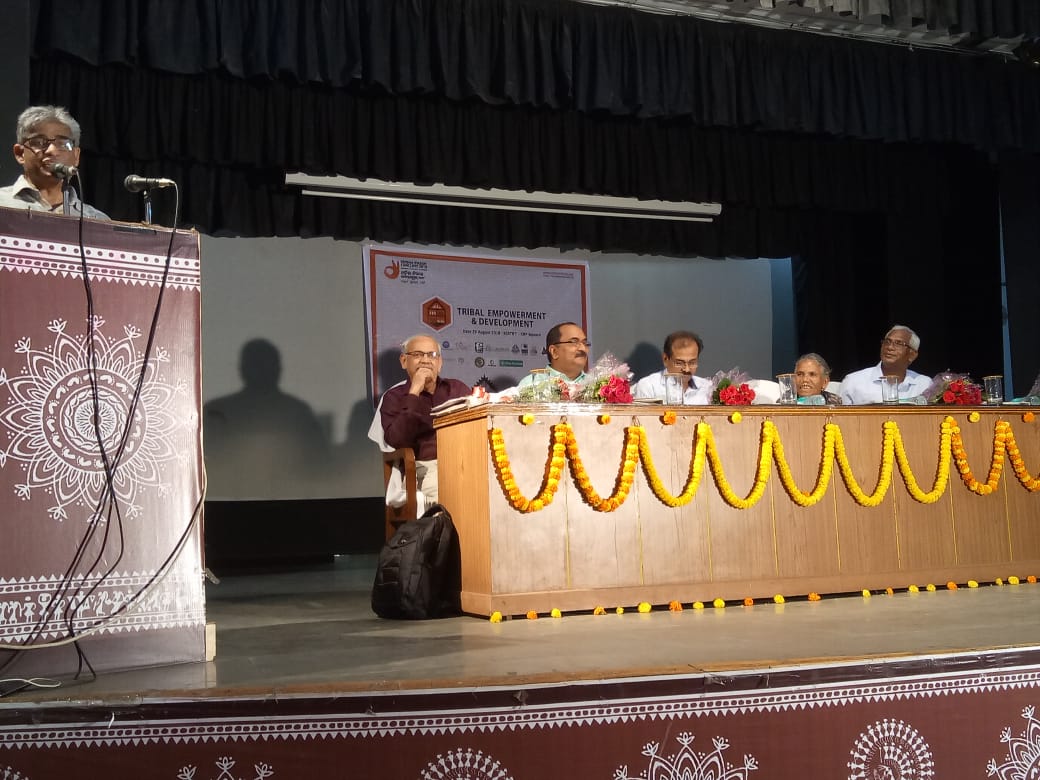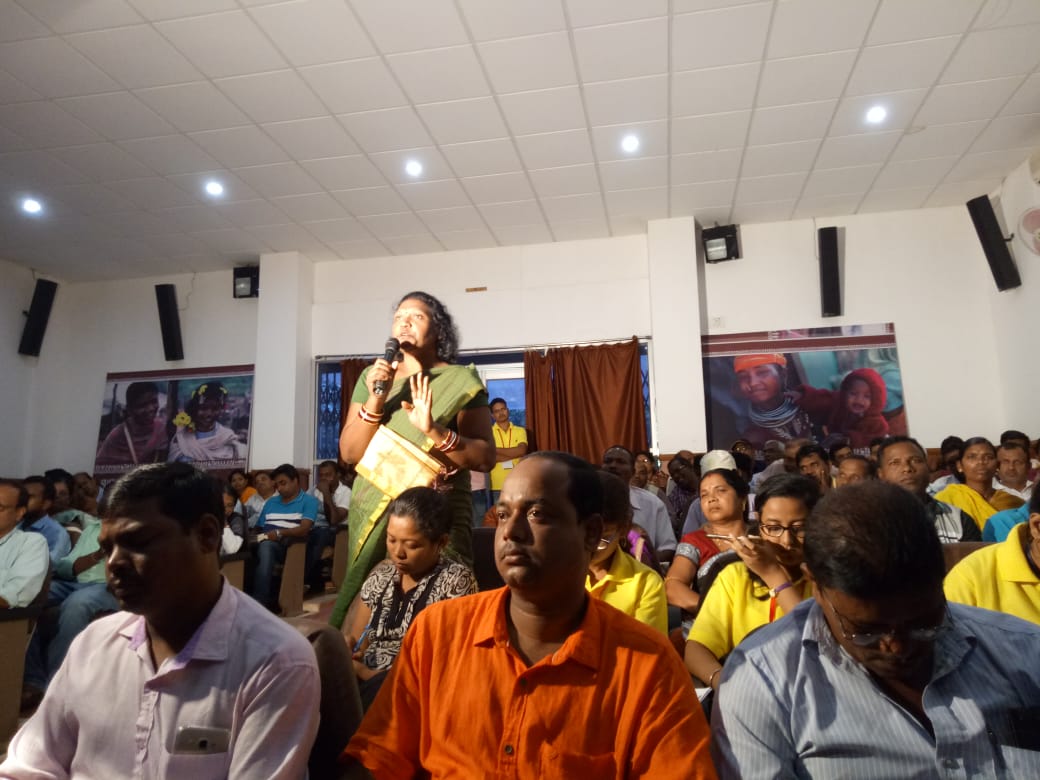ODISHA DEVELOPMENT CONCLAVE: TRIBAL SELF-GOVERNANCE
Report by Fr. Nicholas Barla
CBCI Office for Tribal Affiars
Bhubaneswar - August 25th 2018: ‘ODISHA DEVELOPMENT CONCLAVE’ was held from 24th to 26th August 2018, which deliberated on “Tribal Self -Governance” at Schedule Caste- Schedule Tribes Research and Training Institute (SCSTRTI), at Bhubaneswar, Odisha.
Prof. A.B Ota IAS, Special Secretary cum Director of SCSTRTI, Government of Odisha (GoO), Mr. R.Raghu Prasad, Commissioner Cum Secretary, ST/SC Development Department , GoO; Ms. Sumon Jhodia, Former Adviser to Chief Minister, Ex Member of TAC (Tribes Advisory Council); Mr. Pravin Mahajan, Hon Director, National Centre for Advocacy Studies, Pune; Dr. Premanand Panda, Former Director SCSTRTI. Dr. Aurobinda Behera IAS (Retd.) and former member of Board of Revenue, GoO; Mr. Achyut Das, Director, Agragamee; and other Panchayat representatives, social activists, NGOs and government officials participated in the Conclave and had much to contribute.
Fr. Nicholas Barla( Former Advisory Member Ministry of Rural Development, Government of India) the first speaker of the day said ‘out of total 4,19,74,218 population of the State the tribals constitute 95,90,756, which is 22. 86%, which implies that out of every Four of Odiyas, One is a Tribal. There are 7 full Scheduled districts and 6 partial scheduled districts in the state with 62 Scheduled Tribes groups. The situation of the tribals is a sad affair.
To name a few - Malnutrition 45.5% among Tribals and in the State 34.1%; Mortality rate – among Infant Tribal 52 and Odisha 40; under five years -Tribals 66 and State 49. As member of Advisory in the ‘Ministry of Rural Development’ (MoRD), Government of India, he was surprised to learn that Crores of rupees are allotted in the Budget for the tribal development every year, but in reality, not a rupee reaches the needy villages. There are hundreds of schemes; projects and development programmes but the tribal remain the same.

It is all due to exclusion or Non Participation of Scheduled Tribes in the Governance system and the Bureaucracy‘s
“TOP TO BOTTOM” approaches. He added that in the western countries the Indigenous Councils / Tribal Council participate and are actively involved in Governance. He appealed for a structural change in the Governance in scheduled Areas where the Tribals genuinely and actively participate in the planning, decision-making and implementation of the schemes and projects sanctioned by the government. He further said that there is a felt need for implementation of the Fifth and Sixth Schedule of the Constitution together with the PESA Act, Forest Right Act 2006, Land Rights Act 2013 and other Supreme Court Judgments in favour of the Tribals. The grim situation of Odisha among the tribals, can be changed with Political and Bureaucratic will power and with Structural Change in Administration.
The Best Practice:
Mr. Parimal Singh IAS, former deputy secretary to the Governor, Government of Maharashtra, said, the Governor is exercising the Constitutional Powers, empowered in the Fifth Schedule of the Constitution. There is ‘Special Tribal Cell’ in the office of the Governor. He said without the “Gram Sabha” there would be No transfer of land from the tribals to Non Tribals. The 5% of ‘Tribal Sub Plan’ (TSP) is going straight to the Gram Sabhas and the Gram Sabhas are having over 70-80 Lakhs for their Gram/ Village development. As there are many Acts and laws, the Secretary Advocates within the government offices and make laws in accordance with Fifth Schedule provisions, PESA Act, Forest Rights Act, and Land Rights Act in the Tribal / Schedule Areas. With that, they can have their own development plans and activities.

Mr. Rakesh Sharma, IAS (Retd.) former Additional Commissioner cum Special Secretary, Government of Himachal Pradesh, said there is “Single line Administration” in Himachal Pradesh. Through ITDA (Integrated Tribal Development Agency) not through District Collector, so that tribals deal with one office. Dr. P. Trinadha Rao, Andrapradesh said, Single Line Administration as well as according to “Samata Judgment 1997” Supreme Court has stated that even State is a Non-Tribal entity; hence it cannot take the Scheduled Area Land without the prior consent of the Gram Sabha.
In his concluding remarks, Prof. Bipin Jojo from TISS said that with all these practices and experiences, we need to start the Governance in Scheduled Areas with a New Structure based on Fifth Schedule, starting with Governor’s Office with Tribal Cell, and strengthening the ‘Tribes Advisory Council’ (TAC), ITDA , District Autonomous Council (DAC) and then Gram Sabha. He also cited on Sami Parliament in Sweden, where the Indigenous Peoples themselves select / elect their representatives and make the plans, take decision and execute them.
With much hope and expectations, the meeting concluded on a very positive tone for the development of the tribals.